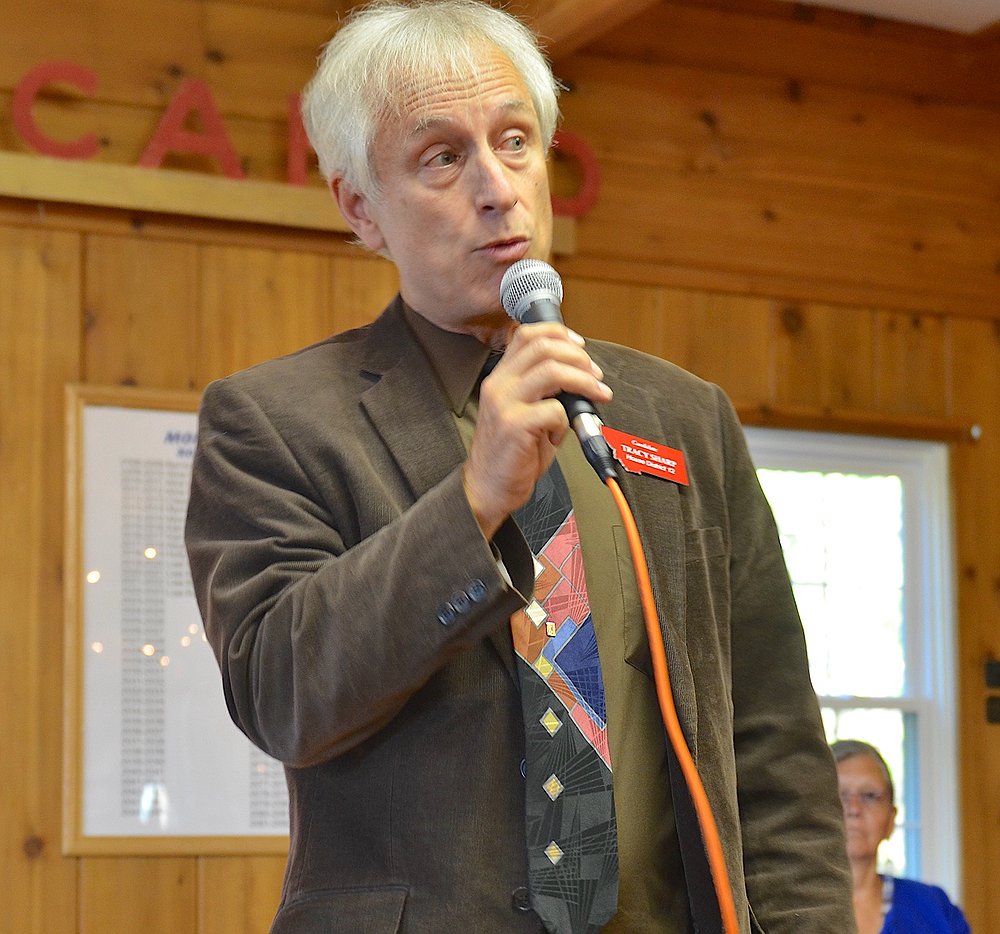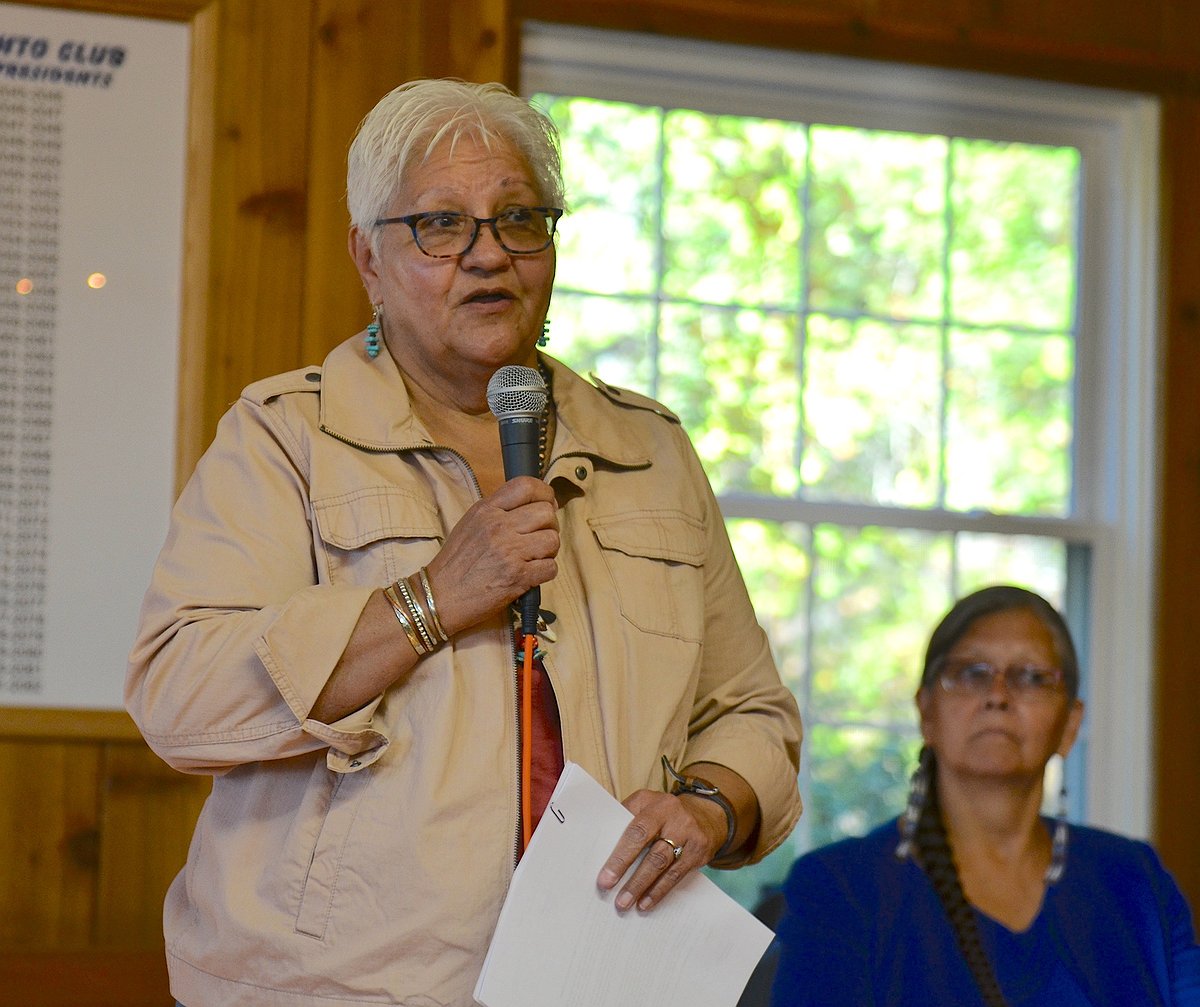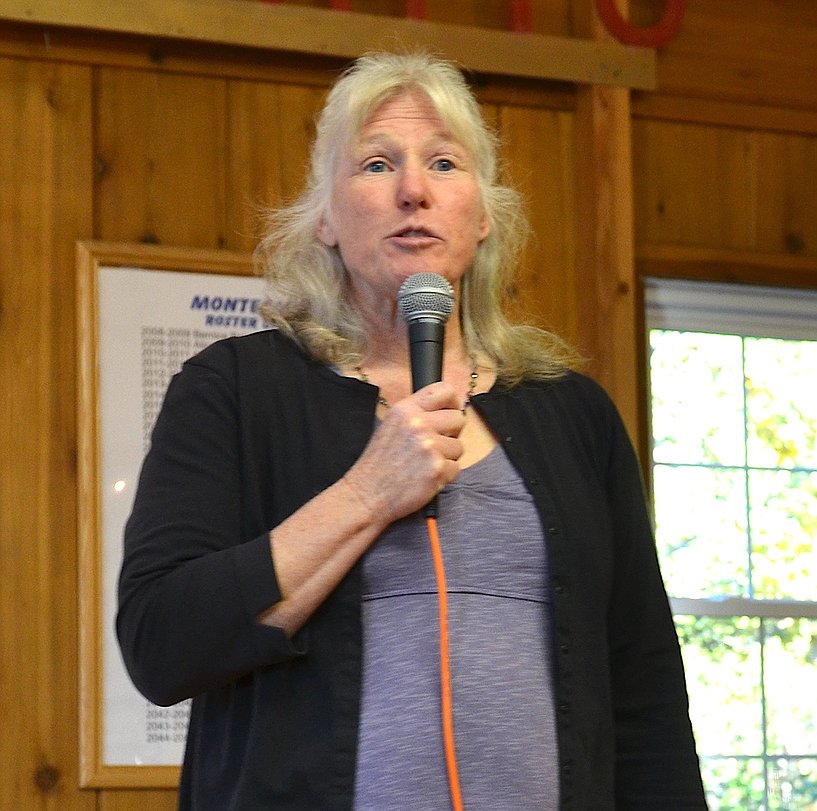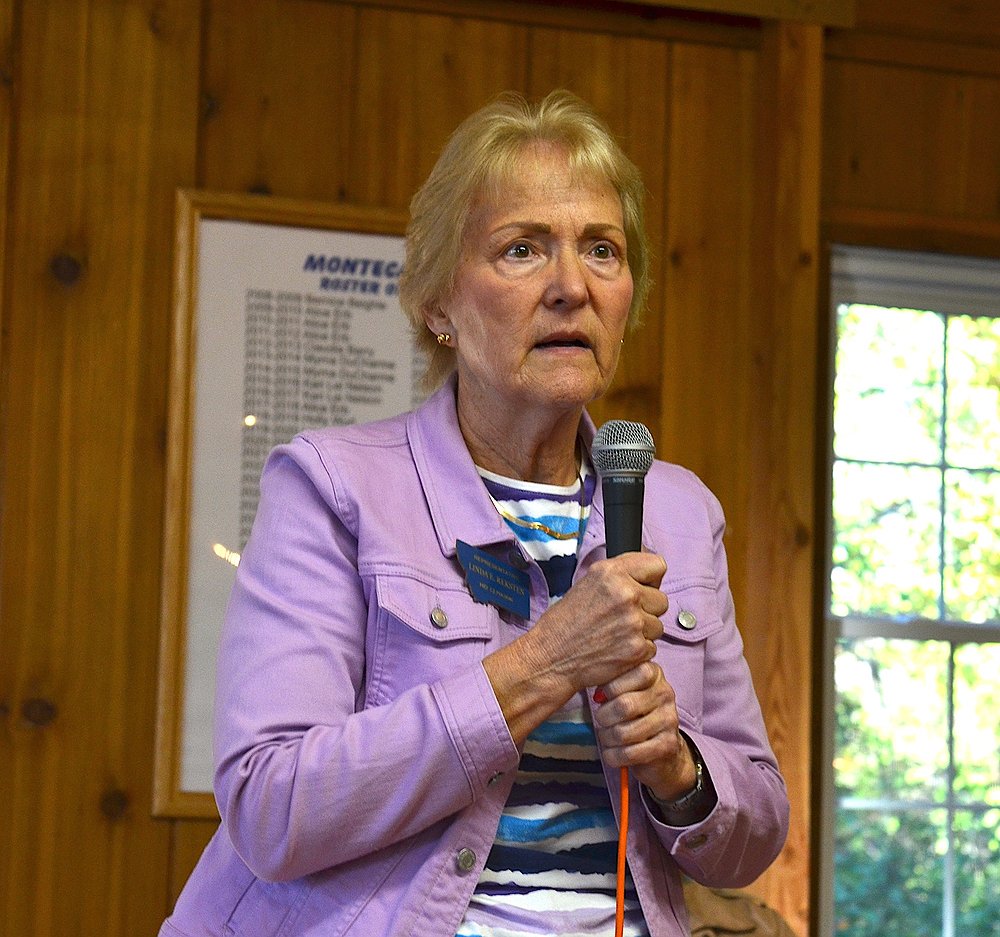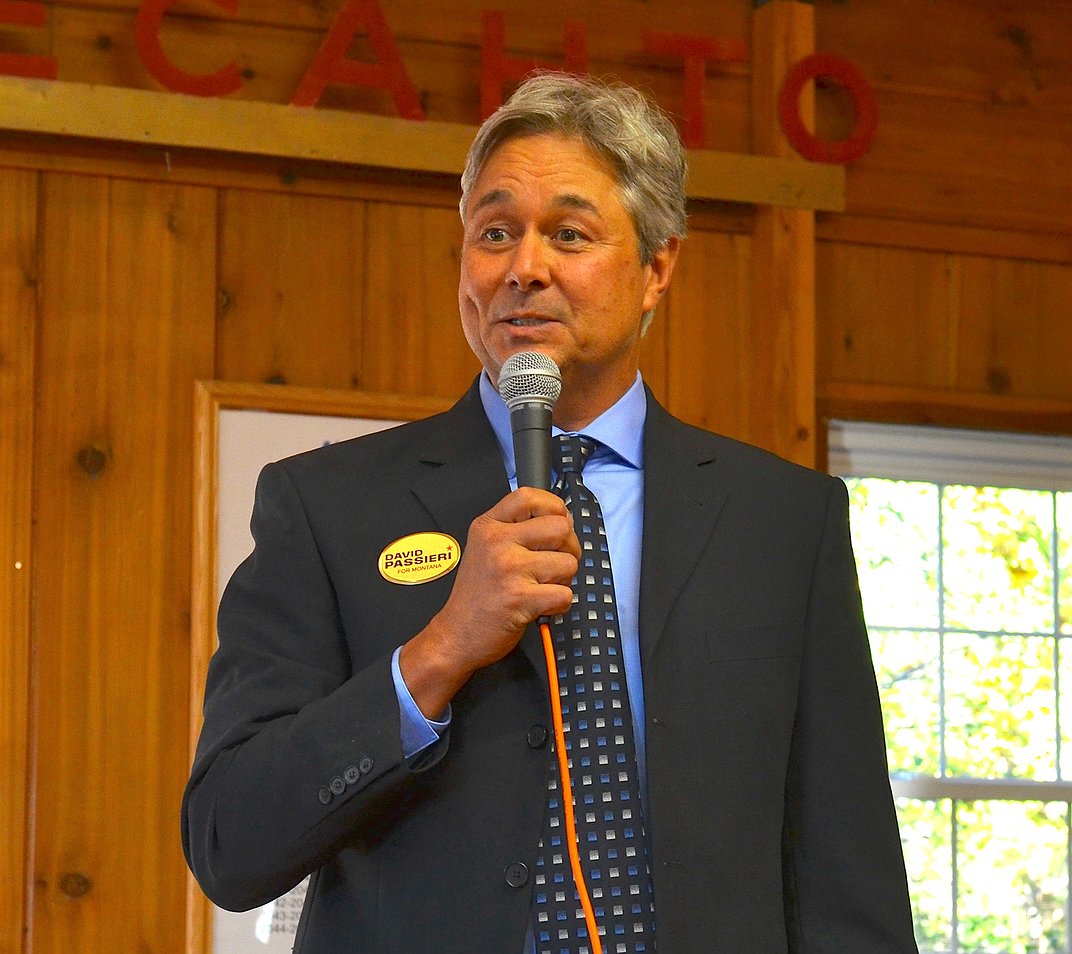Legislative Forum Part II: Candidates on abortion rights, housing & education
Many of Lake County's legislative candidates gathered Sept. 26 at the Montecahto Club near Finley Point for a forum moderated by Thomas Spencer, who teaches government classes at Polson High. The Leader focused on their responses to questions about Medicaid expansion and property taxes in last week's issue, and covers their stances on abortion access, housing and education this week.
Do you support passage CI-128? (The constitutional initiative, if approved, would amend the Montana Constitution to expressly provide a right to make and carry out decisions about one’s own pregnancy, including the right to abortion.)
This topic drew the most heated response from candidates and from the audience. All four Republican candidates opposed the initiative, stating that Montana’s constitution already protects abortion rights through its privacy provisions, while Democrats favored the initiative.
“I don't support that, not because I am pro-life, but the issue with it is once you start putting things in the Constitution that are that broad, it's hard to give your legislature authority as to how you might want to make changes,” Sen. Greg Hertz, who is running for Senate District 7, said.
His Republican colleagues agreed. “This needs to be discussed in the legislature,” said Tracy Sharp of Polson, a candidate for House District 12, adding that “the spark of divinity in every person is something that we have to treat sacredly.”
“When it comes to eliminating the divinity of that spark of light, that's something we should take a lot more serious than simply passing an initiative supported by outside money.”
David Passieri of St. Ignatius, who is running for HD 91, expressed support for abortion in cases or rape, incest and a pregnancy that endangers the mother’s health, but argued that existing laws provide those safeguards. The initiative “opens up Pandora's box on so many levels,” he said. “Do we really need this? Is this a representation of evil?”
Rep. Linda Reksten, who is running for her third term in Polson's HD 13, contends the CI-128 initiative process was funded largely by out-of-state interests, and said “Montana people did not weigh in on this at all.” She also asked why it was necessary since “if any person in this room desired to have an abortion, you can go to any of those clinics and have that done. Right now.”
Democrat Shelly Fyant of Arlee, who is running against Passieri in HD 91, countered that 30,000 signatures are required to get a constitutional initiative on the ballot, “and the petition carriers brought in 60,000 signatures for CI-128. So Montanans have spoken.”
Thedis Crowe of Heart Butte, who aspires to represent voters in HD 15 acknowledged that abortion access “is a very hot topic.”
“This is a private decision and it needs to be done between a woman and her doctor,” she said. “Those kinds of decisions do not belong, even in venues like this.”
Shirley Azzopardi, who is running opposite Reksten, pointed to the restrictions and outright abortion bans that have occurred across the U.S. since the Supreme Court overturned protections provided by Roe v. Wade as reason to support CI-128.
“The government should not be interfering with private medical decisions between physicians, patients, and families,” she said.
What can state government do to ensure our citizens have additional affordable housing?
All participants acknowledged that lack of affordable housing is a complex issue facing Montanans.
Hertz, who served on the governor’s housing task force, said the basic solution to the housing crisis is to build more houses, and pointed to his bill, passed by the last legislature, that made it easier for homeowners to build ADUs (additional dwelling units).
Both he and Reksten cited legislation passed during the last session, including $100 million that was set aside to help expand infrastructure, such as roads, water and sewer lines, and cuts that were made to regulatory impediments.
“We cut over 200 red-tape regulations for housing to make it a little easier for builders to build,” Reksten said. “But there’s still a lot to be done.”
“What government can do best is get out of the way,” Sharp said. “Simplify the regulations. Streamline policies both locally and at the state level.”
Passieri suggested that more workers in the building trades could make a difference too. “We need more people to help build these homes. We need the expense and the cost for the home builders to go down. We need innovation,” he said.
Crowe chided the governor for not including more minorities or handicapped individuals on his housing task force, which she watched meet via Zoom. She also suggested seeking more federal assistance, especially in rural areas, “so we can keep our teachers, so we can recruit and keep our nurses.”
Fyant was in favor of implementing a low-income housing tax credit to help finance the production and preservation of rental housing affordable to families and seniors living on low incomes.
“Montana leaves millions of federal tax funds on the table because the state has no matching funds to match the federal housing credits,” she said.
She also advocated housing support for youth aging out of foster care and utilizing Medicaid “to cover supportive housing for patients experiencing homelessness and high health care costs.”
“We do have an enormous shortage of housing, and that's the bottom line,” said Azzopardi. She suggested making low-interest loans available from the Multifamily Coal Trust Fund.
“Montana's ranked the most expensive state to live in in the country,” she added. “So it makes it really hard for young teachers, young nurses, to come and live here.”
What can we do to improve education in Montana?
Candidates from both parties agreed that education needs to be a priority, and that increasing teacher pay is essential – especially given inflation and the increased cost of housing in Montana.
Azzopardi reminded the audience that she has spent 30 years teaching, and continues to be involved with kids.
“It is our responsibility as a society to take care of all of our children,” she said. “And they all deserve a good public education – it doesn't matter what their home life is like.”
To accomplish that goal, she says Montana needs more teachers and to expand the student loan repayment program. The state also needs to provide teachers with the support they need to deal with kids who have mental health issues and special needs.
“If we privatize our public schools, there are kids who will get left out,” she said.
“And those are almost always the low-income kids and the special-ed kids.”
Crowe branded the state’s education budget as “pretty stagnant” and suggesting diverting funds from the budget surplus to educational and vocational training for children and young adults.
Fyant, who said Montana currently has the lowest starting salaries for teachers at $32,870, suggested ramping up entry-level wages and benefits, creating a statewide insurance pool, investing in infrastructure and technology, and providing more professional support for teachers.
“We need to invest in building a pipeline of teachers,” she said, citing statistics showing that Montana has a shortage of around 1,000 teachers.
She also said schools need to make sure students receive healthy meals. “For some kids in my community, school breakfast and lunches often are the only meals of the day.”
Rexsten, vice chair of the education committee, said Montana spends an average of $15,035 per year on K-12 students. She cited laws passed during the last session that upped the pay for new teachers, approved “proficiency-based learning” and targeted intervention, to make sure third graders have mastered basic reading and math skills before they advance.
The legislature also passed two bills allowing for the formation of charter schools, and created an insurance pool that serves both large schools and rural districts.
“There's a lot more to do but we're on the road to getting it fixed,” she said.
Hertz noted that teachers “have to deal with a lot of children that are coming from families that aren't providing those students support … I'm not sure how we can really address that in the public school system.”
He lauded legislation creating charter schools and giving students and parents more educational choices. “Let's give them some options, and hopefully we can get better outcomes,” he said.
Passieri believes Montana spends enough on education and maintains the system is broken. “We should have a public school system that is a privilege, a earned meritocracy, a classical education, a refocus,” he said.
He also believes vaccines are at the root of chronic illness afflicting “60% of our children” and the uptick in autism.
Sharp expressed the opinion that innovation was more important than money. “I am kind of a rebel in this,” he said. “I believe that maybe there should be less money in education so that the education system has to re-prioritize to deal with how we educate first.”
“Kids need to be sent to school to learn,” he added. “They do not need to be sent to school to be babysat.”







